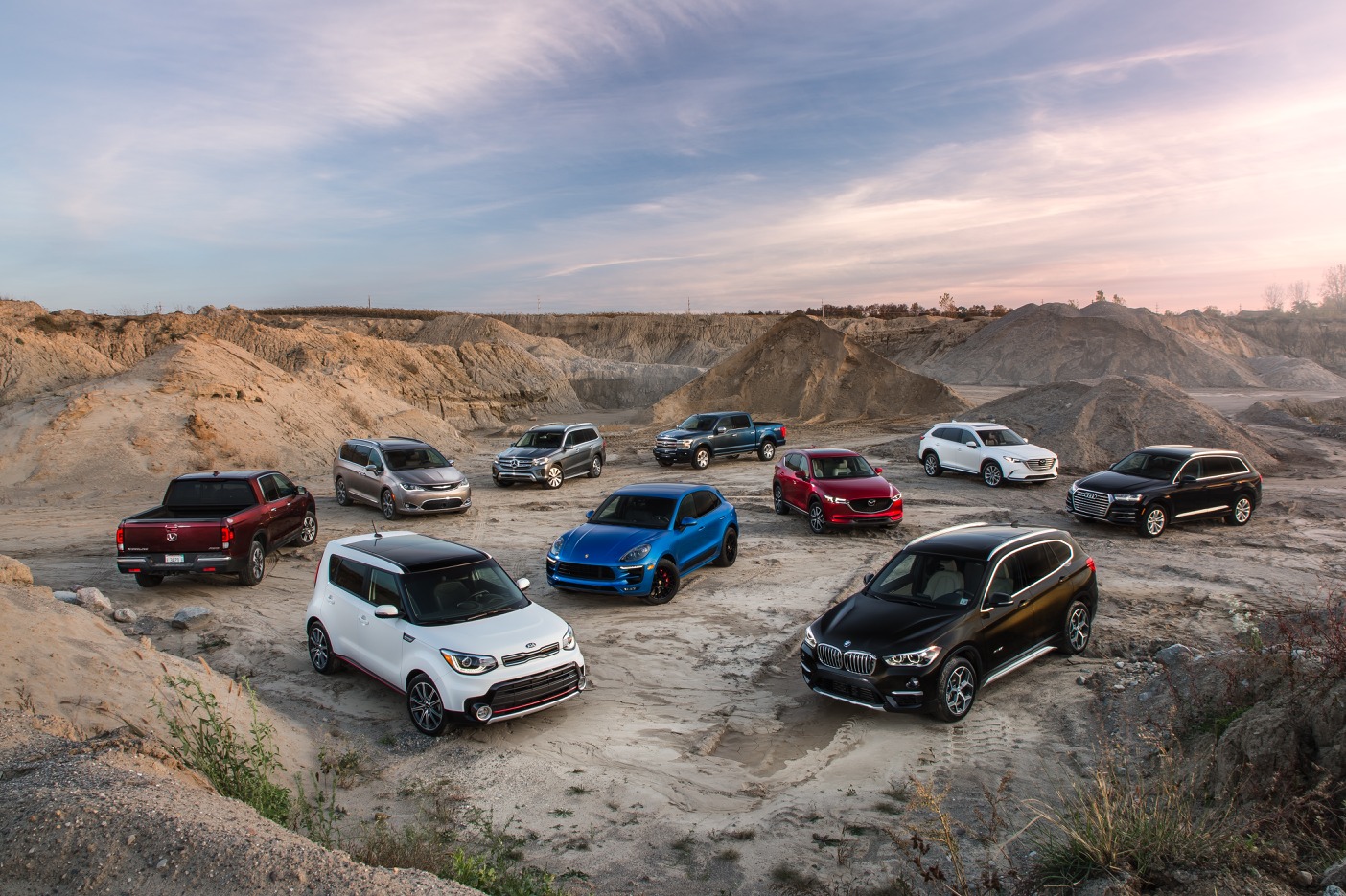Many people buy SUVs with the hope that they can tow their boats, trailers, or campers without issues. Some SUVs deliver strong towing performance, while others struggle to meet basic towing expectations.
Understanding which ones excel and which ones fall short can help buyers avoid disappointment. There are vehicles designed to handle heavy loads with ease, providing steady performance and safety, while others are better suited for daily city driving or lighter cargo.
Towing involves more than just attaching a trailer to the back of a vehicle. It has a lot to do with engine power, braking control, suspension, cooling systems, and even the kind of transmission. A well-designed towing SUV can manage large trailers without stressing the engine or putting too much strain on the brakes.
Drivers also feel more in control when their SUV can confidently manage weight without swaying or slowing down too much. This is why towing capacity figures alone do not tell the whole story. The real test comes when the vehicle is on the road with something heavy behind it.
Some SUVs shine in this area. They come equipped with advanced tech that supports towing, like trailer sway control, built-in brake controllers, and stronger rear axles. These features do not just make towing easier. They also make it safer. A few SUVs stand out as great all-rounders, built to serve as family vehicles during the week and tow trailers for weekend trips.
On the other side, some models claim to be capable but perform poorly once a trailer is hooked up. These vehicles may advertise decent towing limits, but their real-life performance tells a different story.
Their engines strain, transmissions heat up too quickly, and stability becomes a concern. For people who plan to tow often, choosing such models can lead to frustration, extra maintenance, and even safety risks. Let us now look at five SUVs that truly handle towing well and five that do not live up to expectations.
5 SUVs That Handle Towing
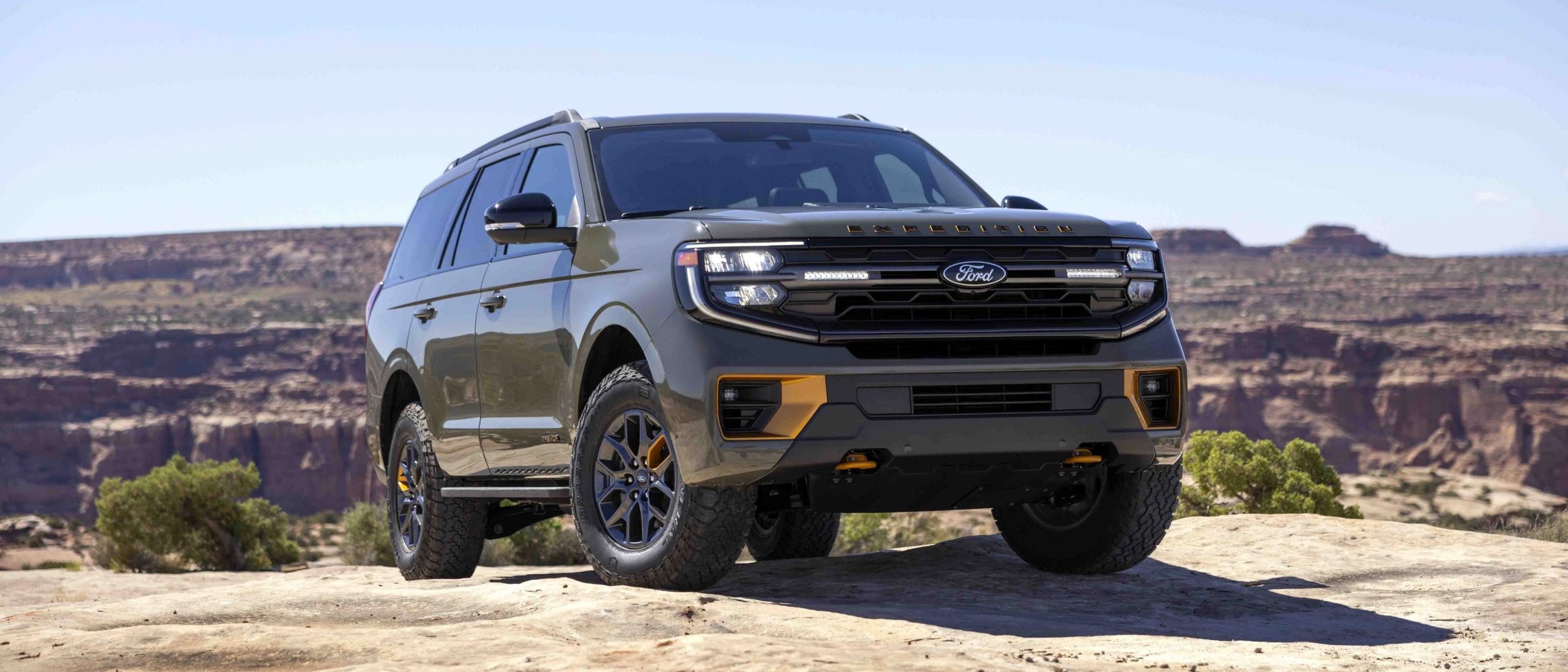
1. Ford Expedition
The Ford Expedition stands tall as a reliable option for those who want an SUV that can confidently tow heavy loads. With its strong engine and towing-focused features, this model continues to satisfy drivers who regularly haul trailers, boats, or campers. It is built with body-on-frame construction, giving it the strength needed for serious towing tasks.
The standard 3.5-liter twin-turbocharged EcoBoost V6 engine produces enough power and torque to pull up to 9,300 pounds when properly equipped. This makes it one of the best towing SUVs on the market.
The 10-speed automatic transmission changes smoothly even under stress, helping the engine deliver consistent power to the wheels. That balance between power and control is part of why many drivers feel confident using this SUV for towing on long road trips.
The Expedition does not just focus on strength alone. It is also loaded with helpful towing tech. Drivers benefit from trailer sway control, a built-in trailer brake controller, and a rearview camera with a special trailer assist feature.
These extras help the driver keep everything under control when reversing, parking, or changing lanes. Visibility is also better than what many rivals offer, which is helpful when managing wide trailers. Inside, the Expedition is spacious and comfortable, offering seating for up to eight people.
So, even with a full load behind the vehicle, passengers inside can still enjoy a smooth and relaxed ride. The suspension system helps reduce the bounce that might come from towing over rough terrain. This keeps the cabin stable and makes the ride more enjoyable for everyone.
Even though it is large, the Expedition is not difficult to handle. Steering is responsive, and the braking system holds up well even with a trailer attached. Owners have also praised the vehicle’s cooling system, which prevents the engine from overheating during heavy towing.
This quality matters a lot, especially for people who travel with heavy loads across long distances or through hilly areas. All these qualities make the Ford Expedition a dependable workhorse for families or individuals who need regular towing strength. It is strong, smart, and safe.
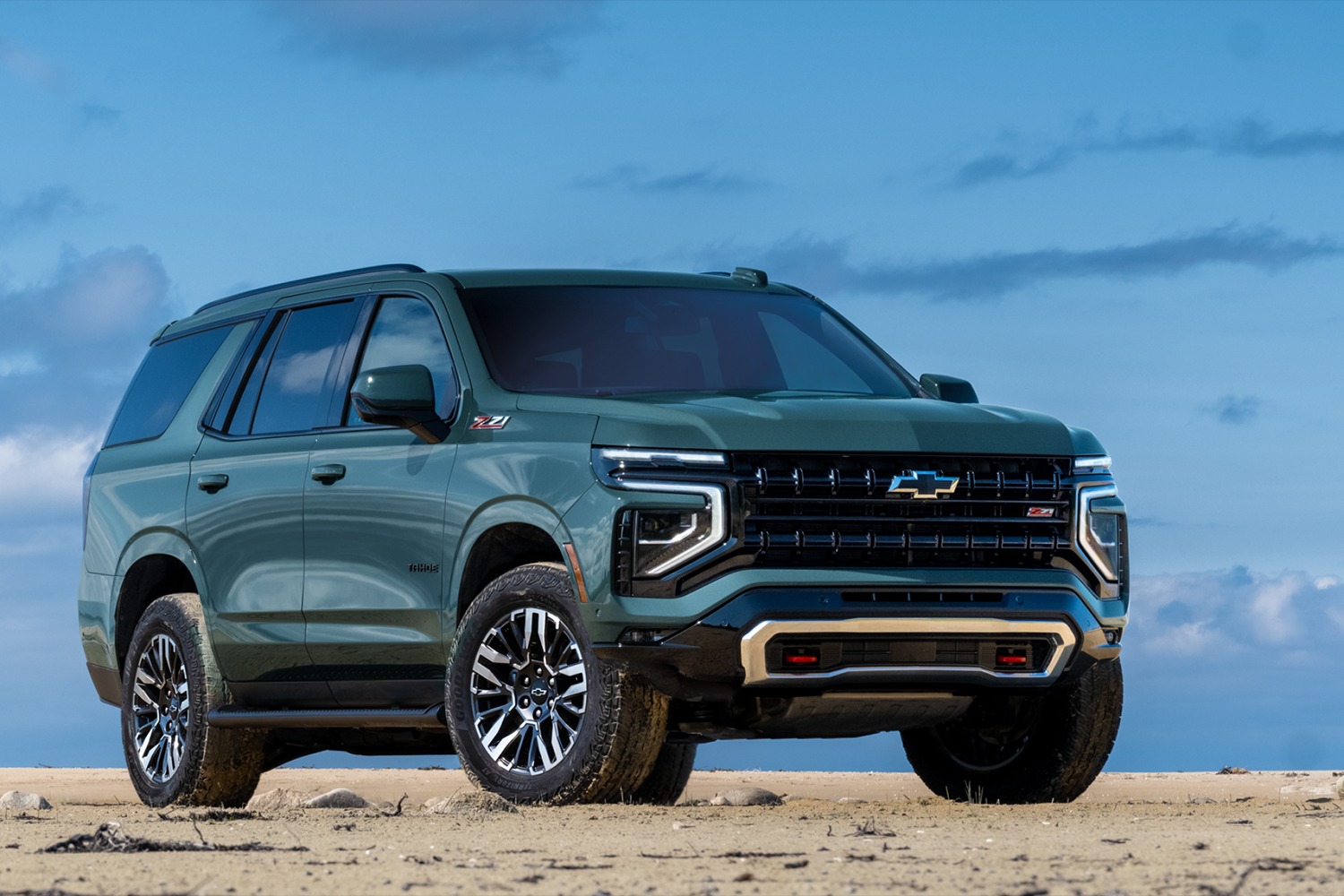
2. Chevrolet Tahoe
Another full-size SUV that stands out for its towing abilities is the Chevrolet Tahoe. It blends impressive pulling power with a quiet and refined cabin, which makes it suitable for both daily use and heavy hauling. People looking for a vehicle that can pull a boat or camper without compromising on comfort often consider this SUV.
The Tahoe’s available 5.3-liter V8 engine offers a towing capacity of up to 8,400 pounds when properly equipped, while the optional 6.2-liter V8 adds even more power and torque. For those who prefer fuel efficiency, Chevrolet also offers a diesel option, which still delivers strong torque for towing while reducing fuel usage. This variety gives buyers different options based on their needs and preferences.
What gives the Tahoe an edge is the way it handles weight. With its well-designed suspension and rear-wheel-drive architecture, the vehicle remains steady even with a loaded trailer. The independent rear suspension also improves ride comfort, preventing too much bounce or sway during towing. It feels more composed than some rivals, especially when going through turns or down uneven roads.
Chevrolet adds helpful technology too. The Tahoe comes with trailer sway control, a trailering app, hitch guidance, and even a trailer brake controller. All these features help make towing easier, especially for those who are new to pulling heavy cargo. The cameras and sensors also provide added safety, helping the driver spot obstacles and keep an eye on the trailer while on the move.
The cabin itself is large and quiet. This matters because towing can be stressful, especially on long trips. A quiet and calm interior helps reduce driver fatigue. With plenty of room for passengers and cargo, the Tahoe works well as both a family vehicle and a towing machine. The infotainment system is easy to use, and there are USB ports and storage spaces across all three rows.
Braking is firm, and the engine cooling system has been improved to handle long-distance towing. Even when used under heavy load, the engine remains stable. Drivers appreciate the way the Tahoe responds during steep climbs or while descending with a trailer in tow.
The Chevrolet Tahoe offers the strength needed for towing without sacrificing comfort. That combination makes it an attractive choice for families or individuals who need both power and practicality.
Also Read: Top 10 Cars With Durable Upholstery Offering Long-Lasting Interiors
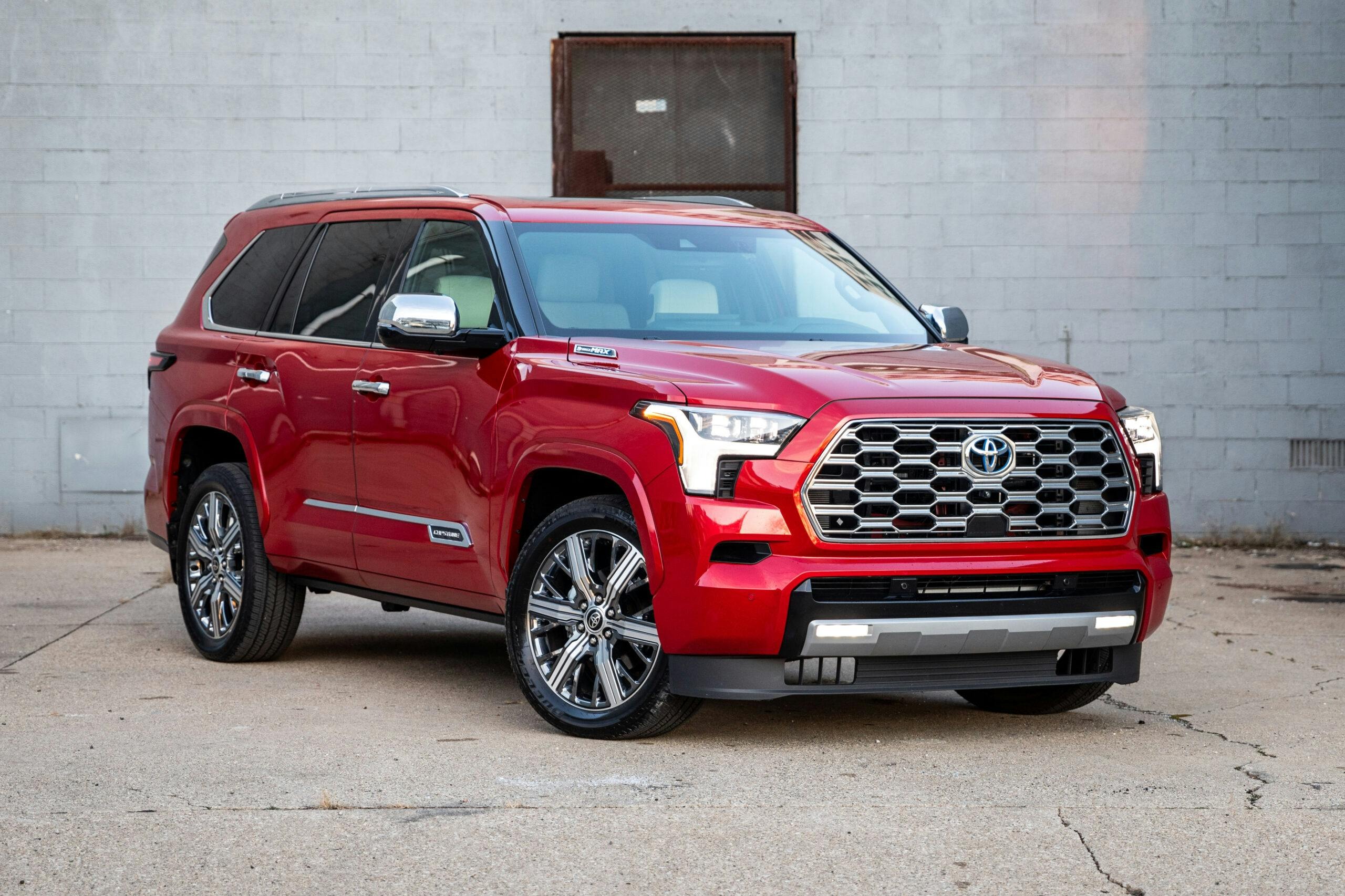
3. Toyota Sequoia
The Toyota Sequoia is a full-size SUV that has always been associated with reliability. With its recent redesign, it now performs much better in towing situations while offering improved efficiency and interior comfort. Those who value dependability and capability often find the Sequoia a worthy option.
This SUV is powered by a 3.4-liter twin-turbo V6 hybrid powertrain called i-Force Max. It produces a strong 437 horsepower and 583 lb-ft of torque. These numbers place the Sequoia among the stronger contenders in the towing category. When properly configured, it can pull up to 9,520 pounds, which makes it one of the most capable full-size SUVs available for towing.
Toyota did not just upgrade the powertrain. It also worked on improving towing dynamics. The Sequoia uses a solid frame, and the suspension has been tuned for carrying and pulling heavy loads. The result is better handling and more confidence when towing trailers or boats across different types of roads.
Inside, the Sequoia offers space for up to eight passengers, and the third row is more comfortable than what many rivals offer. The cargo area is flexible, and the second and third rows fold flat to create extra room when needed. Drivers can also use different drive modes to adjust the vehicle’s response based on what they are pulling.
The Sequoia includes helpful features like trailer backup assist, an integrated trailer brake controller, and multiple camera views that make connecting and driving with a trailer less stressful. These tools are especially helpful for drivers who may not tow regularly but still want a smooth and easy experience when they do.
Fuel economy is better than older Sequoia models, thanks to the hybrid engine. This helps reduce the cost of long trips, especially when towing heavy loads over great distances. Despite the extra power, the vehicle still manages to offer a smooth and quiet ride.
Passengers can travel in comfort, and drivers feel in control even when the SUV is under stress. The Toyota Sequoia combines heritage with improved power and useful towing tools, making it a solid choice for those who want to haul without worries.
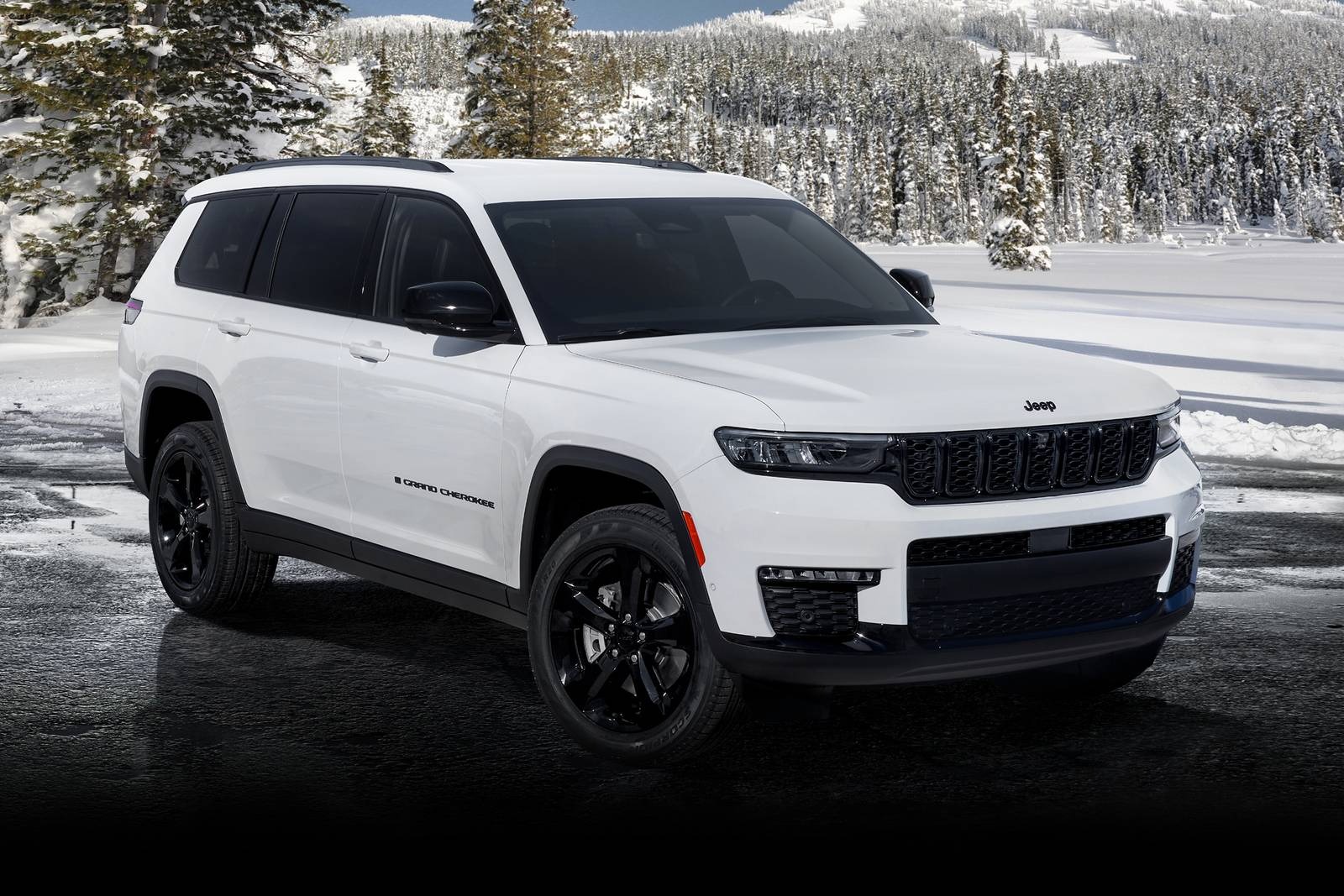
4. Jeep Grand Cherokee
The Jeep Grand Cherokee might not be the largest SUV available, but it has made a name for itself when it comes to handling towing tasks better than many would expect. Jeep focused on giving this model enough power, capability, and technology to compete with larger rivals, and that effort shows clearly in its performance on the road while towing.
The Grand Cherokee offers multiple engine choices. The 3.6-liter V6 comes as standard and can tow up to 6,200 pounds. Those who need more strength can go for the 5.7-liter V8, which boosts towing capacity to 7,200 pounds.
These numbers place the Grand Cherokee above many mid-size SUVs in the same class. The available Quadra-Trac four-wheel drive system also provides added traction, especially useful for towing in slippery or uneven conditions.
Even though it’s not a full-size SUV, the Grand Cherokee is still built with strong materials and a suspension system that gives it both comfort and control under load. Whether you’re towing a small trailer, a medium-sized boat, or a camper, the SUV holds steady without struggling too much on hilly roads or long highways.
Jeep also included features designed to make towing less stressful. Hill start assist, trailer sway control, rear load-leveling suspension, and a helpful rearview camera assist drivers in keeping everything in line.
These features may seem small, but they play a big role during long trips with heavy cargo. Drivers feel more secure when they know their vehicle has systems in place to help manage difficult towing conditions. Inside the cabin, Jeep made sure passengers feel comfortable.
The seats are supportive, the infotainment system is modern and responsive, and the sound insulation reduces road noise. This is particularly useful when the engine is working harder due to a trailer or extra weight. It helps the driver stay calm and focused even on longer trips.
When all these features come together, the Jeep Grand Cherokee shows that size is not always what matters most. Its solid towing strength, smart systems, and smooth driving experience make it one of the best options for those who want a dependable mid-size SUV that won’t disappoint under pressure.
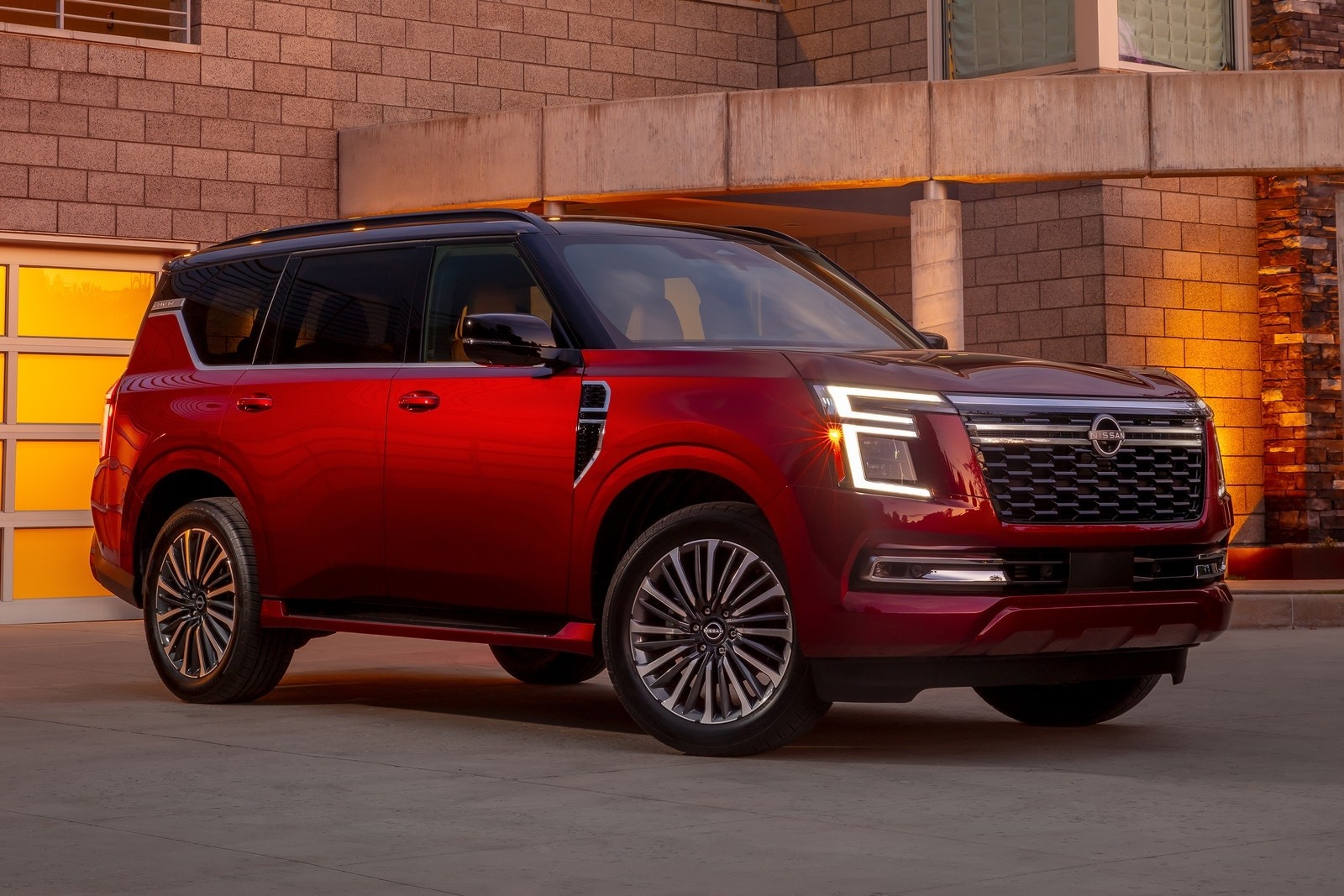
5. Nissan Armada
The Nissan Armada is one of those SUVs that might not get much attention, but it quietly gets the job done for people who need serious towing capacity. With a strong V8 engine and a traditional body-on-frame build, this full-size SUV was designed with towing in mind. Drivers looking for a work-ready SUV that still offers comfort and convenience often turn to the Armada.
Under the hood, the Armada uses a 5.6-liter V8 that produces 400 horsepower and 413 lb-ft of torque. When properly set up, the vehicle can tow up to 8,500 pounds. These numbers allow it to compete with some of the strongest towing SUVs on the market. The engine is responsive, and even when under stress, it does not feel overworked. That makes a big difference during long-distance trips or when climbing steep grades.
One area where the Armada shines is in its transmission behavior. The seven-speed automatic transmission delivers smooth gear changes that keep the engine steady, even while pulling a loaded trailer. Whether driving in town or on the highway, the transitions between gears stay predictable and don’t create unnecessary jerks or delays.
Towing-focused features are also present in this SUV. The Armada includes trailer sway control, tow-haul mode, and a rearview monitor with guidelines that help when lining up with a trailer. The frame is solid, and the suspension handles weight without making the ride uncomfortable. The stability offered by the Armada is reassuring, especially when pulling heavier items at higher speeds.
Inside the cabin, Nissan keeps things simple but effective. There is enough space for eight passengers, and the seats are wide and soft. Drivers get a large infotainment screen with helpful towing settings, and the quiet cabin helps reduce stress during extended trips.
What sets the Armada apart is its ability to stay consistent. Even after years of use, many owners say their vehicle still pulls loads with ease. That kind of dependability, paired with real strength, makes the Nissan Armada a dependable option for those who need an SUV that can keep up with their towing demands without giving them stress.
5 SUVs That Hate Towing
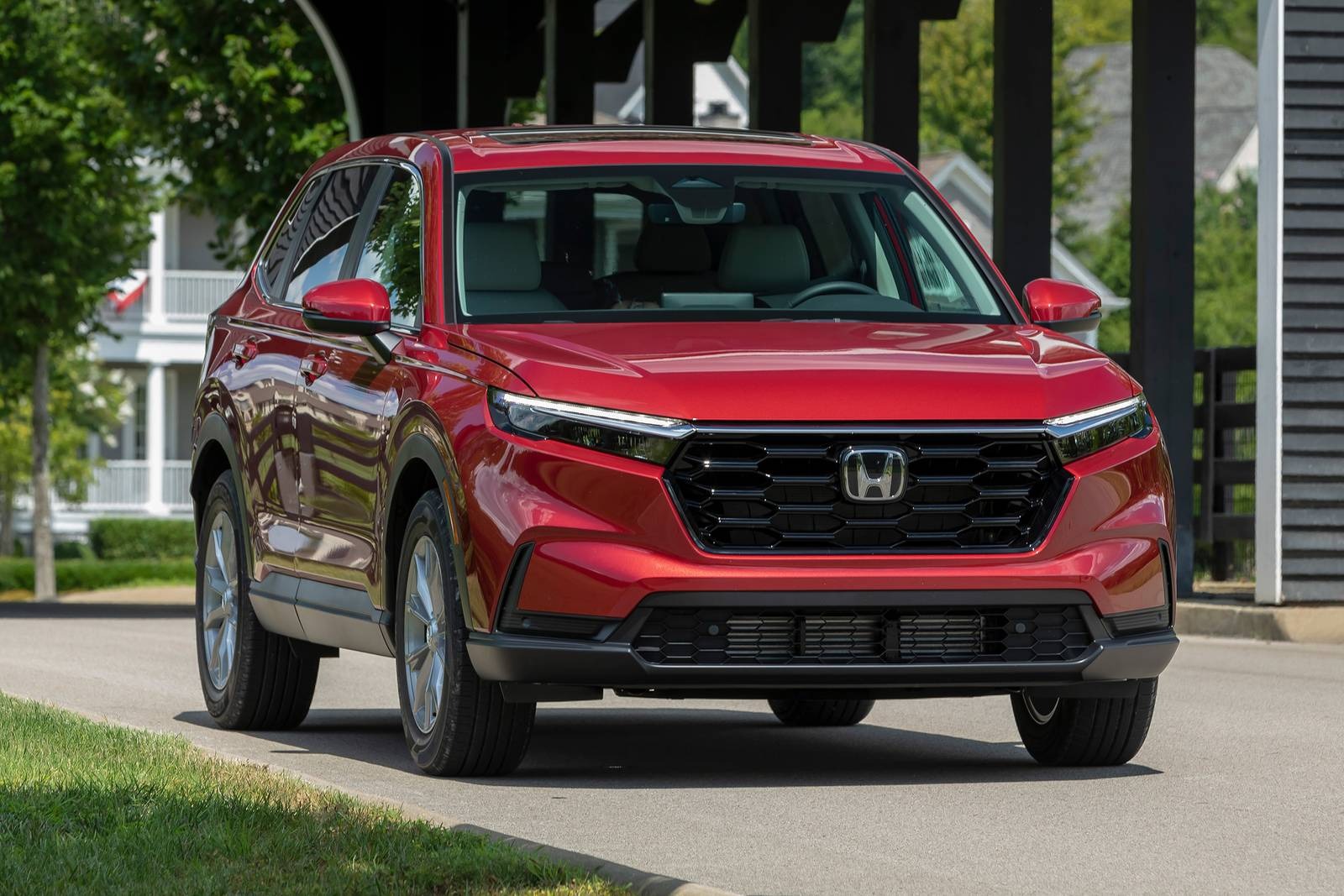
1. Honda CR-V
The Honda CR-V is often praised for being a reliable and efficient compact SUV, but towing is not something it was built to do well. Many buyers choose the CR-V for its comfort, fuel economy, and smooth ride, but those who need to pull even small trailers may quickly discover the vehicle’s limitations.
With a maximum towing capacity of just 1,500 pounds, the CR-V sits near the bottom of its class when it comes to towing ability. That figure might be enough for a small utility trailer or a lightweight pop-up camper, but it is not ideal for people who plan to haul heavier loads regularly.
The available engines, either the base 1.5-liter turbocharged four-cylinder or the hybrid powertrain, do not offer enough torque to comfortably manage extra weight over long distances or steep terrain. Another issue is how the CR-V behaves when towing.
Even though it is comfortable when driven on its own, once a trailer is attached, drivers may notice sluggish acceleration and a heavy feel in the steering. The suspension is designed for comfort, not load-bearing, so it may bottom out or bounce more than expected when towing something near the limit.
Honda did not include any advanced towing features in the CR-V either. There is no trailer sway control, no tow-haul mode, and no backup camera with trailer alignment guides. This lack of support can make towing stressful for inexperienced drivers, especially during reversing or highway merging.
Inside, the cabin remains comfortable and quiet, but that does not help much when the vehicle struggles to maintain speed with a trailer behind it. While the CR-V continues to be a dependable and economical option for city driving and family transport, it clearly was not designed to be used as a towing vehicle. Buyers who need an SUV for towing purposes should look toward larger or more capable models instead.
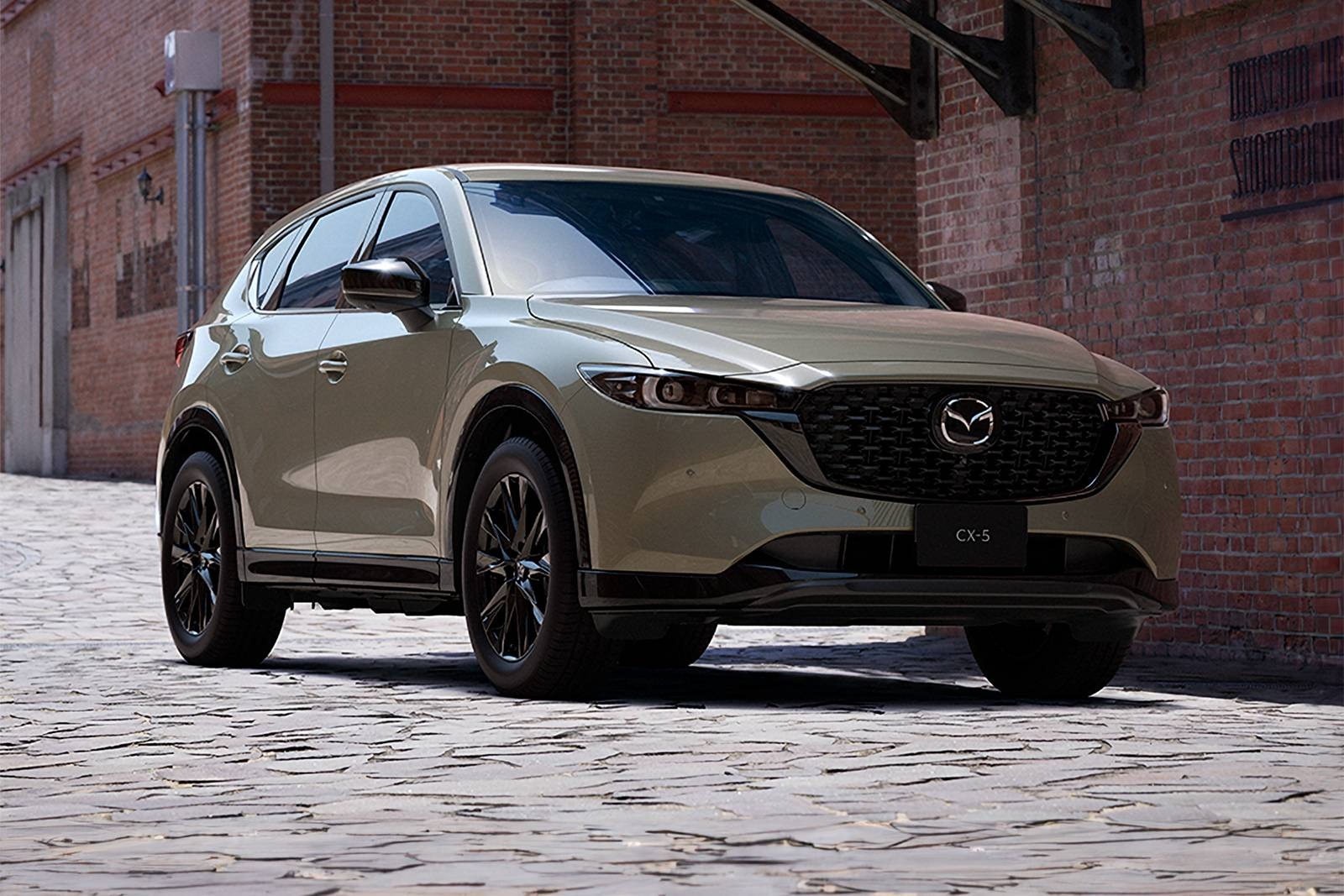
2. Mazda CX-5
The Mazda CX-5 is a compact SUV known for its sporty driving feel, elegant design, and comfortable interior. However, it does not offer much when it comes to towing strength. While it may handle sharp corners and city streets with ease, it shows clear signs of weakness when put in situations that require it to tow more than a light trailer.
At best, the CX-5 can tow up to 2,000 pounds. That number might look okay for light tasks, but in practical terms, it limits the vehicle to small trailers or very compact recreational equipment.
Even when towing within that limit, the engine starts to feel strained, especially on uphill climbs or during long highway drives. The 2.5-liter four-cylinder engine, whether naturally aspirated or turbocharged, is tuned more for fuel economy and smoothness than pulling power.
When a trailer is added to the load, drivers may notice a decrease in throttle response, longer stopping distances, and increased sway during turns. These changes affect how secure and confident the vehicle feels when driving, especially if the driver is not experienced in handling a trailer.
Mazda did not include many towing-specific features in the CX-5 either. There is no trailer sway control, and it lacks a tow-haul mode that could help maintain engine performance under stress. The suspension, while great for ride comfort, does not offer the firmness needed for regular towing. It can feel too soft once weight is added to the rear, causing uneven weight distribution and bounce.
Inside, the cabin is well-designed with soft materials, a quality infotainment system, and supportive seating. But while passengers enjoy the space, the driver may feel uncomfortable handling a trailer behind a vehicle that was not intended for such use.
For people who value handling, comfort, and design, the Mazda CX-5 continues to be a great compact SUV. But for those who want to use their vehicle to tow boats, campers, or anything heavier than a small trailer, this model falls short.
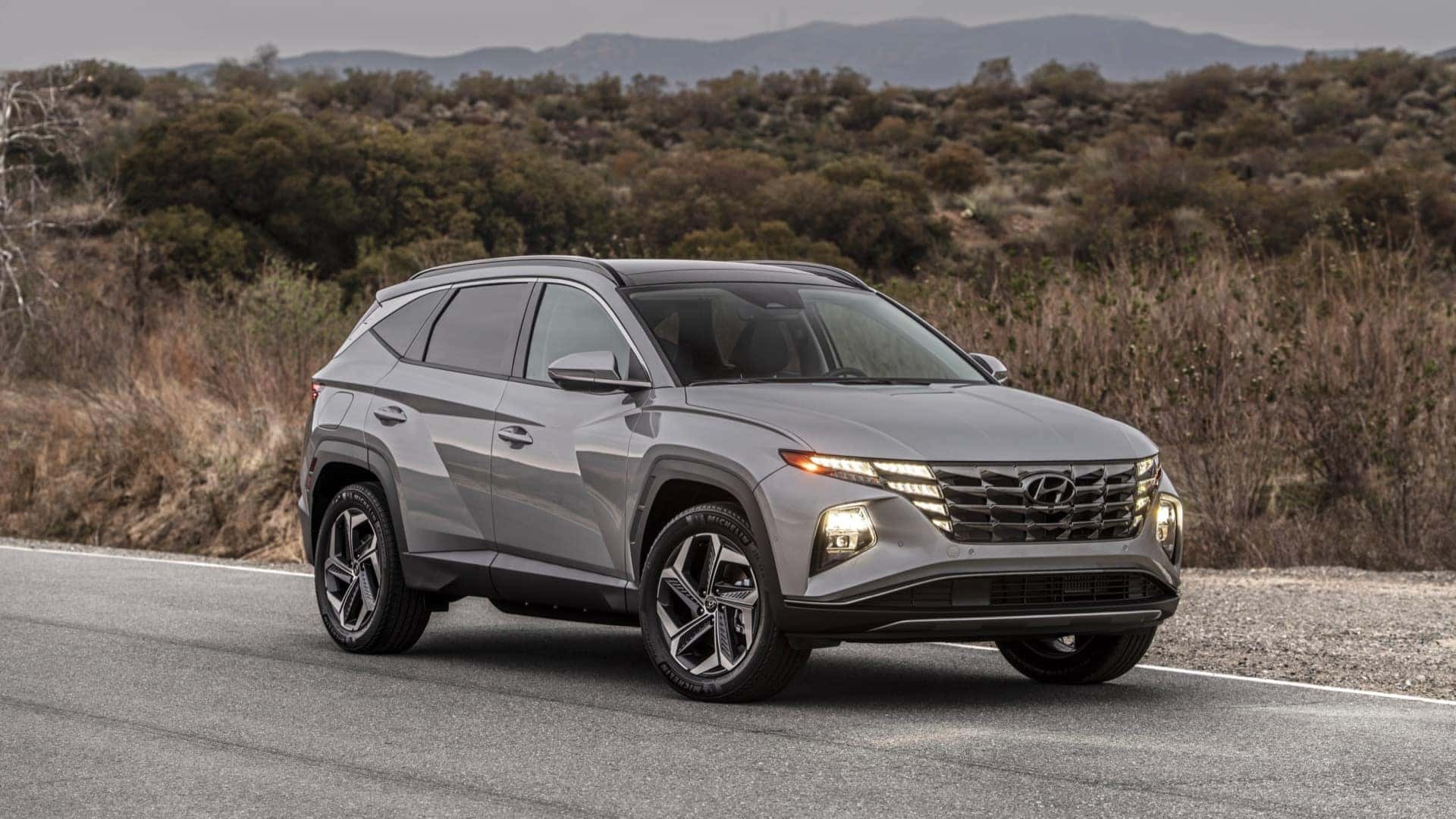
3. Hyundai Tucson
The Hyundai Tucson does many things well. It offers a roomy interior, great safety features, and a smooth driving experience. But when it comes to towing, this compact SUV does not deliver the kind of power and stability needed for anything more than light tasks. Its towing performance remains one of its weakest points.
Hyundai rates the Tucson with a towing capacity of 2,000 pounds for the gasoline version and only 1,650 pounds for the hybrid. These figures tell the story. While that might be enough for a light trailer or a pair of dirt bikes, it’s not the kind of strength needed for towing a small camper, jet ski, or mid-size boat. Drivers expecting more from their SUV might be disappointed once they realize the limitations.
Another thing that affects Tucson’s towing capability is its powertrain. The standard 2.5-liter four-cylinder engine works well for commuting, but it does not produce enough torque to pull weight comfortably over long distances. The hybrid system, while efficient for fuel savings, adds even less towing power. Both setups result in slow acceleration and increased engine noise when pulling even light trailers.
There are no extra towing support features like trailer sway control or a dedicated towing mode. This absence makes towing more difficult and puts more responsibility on the driver to stay in control. Even reversing with a trailer becomes challenging because of the lack of visual assistance systems made for towing.
While Tucson has a refined and quiet cabin, and its ride quality is good for passengers, its suspension is not tuned for heavy loads. Drivers might feel too much movement in the rear end of the vehicle when towing, and the added weight affects steering accuracy.
For everyday use, the Hyundai Tucson remains a smart and efficient choice. But as far as towing goes, it simply cannot keep up with stronger competitors in the SUV category.
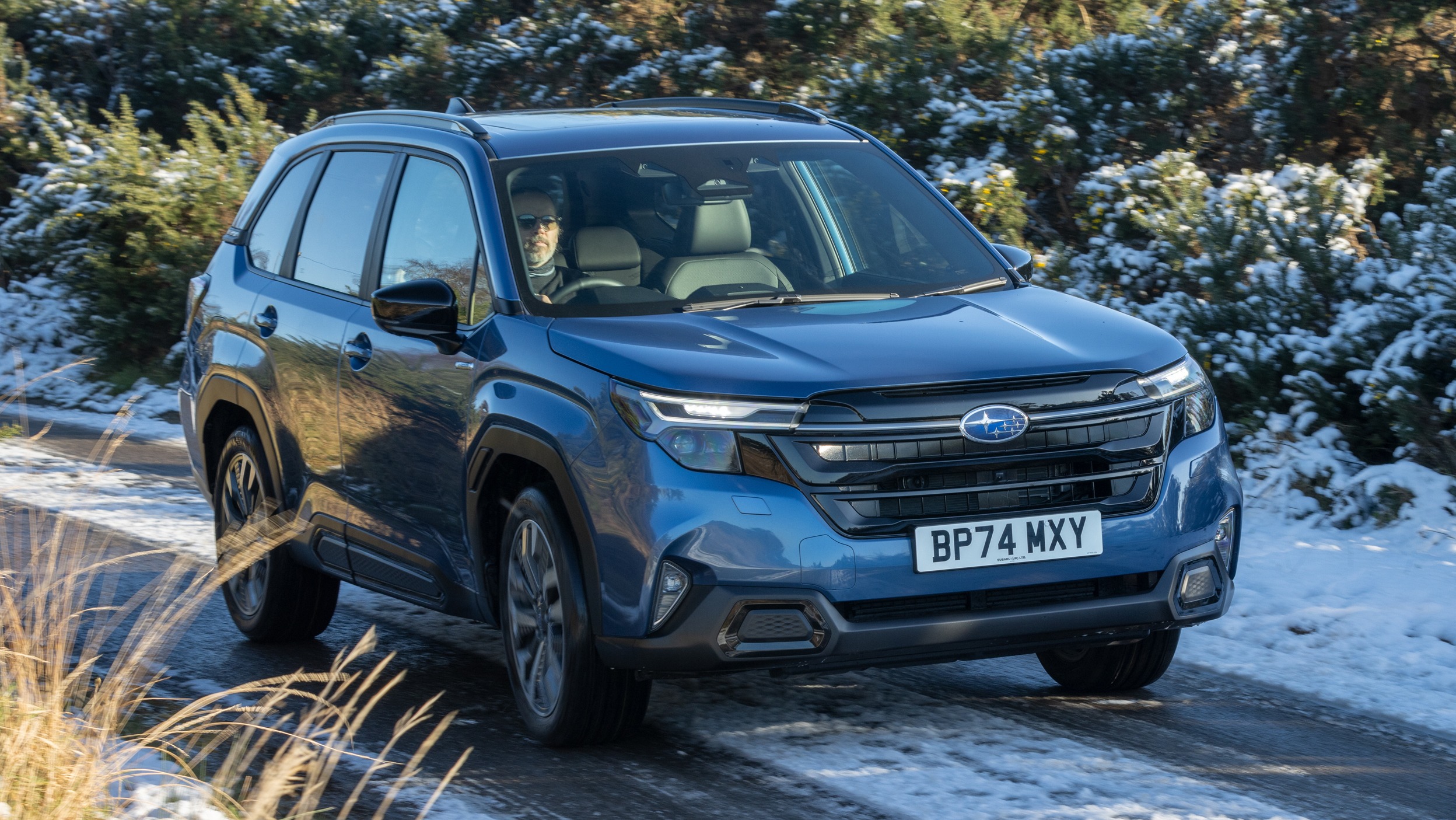
4. Subaru Forester
Subaru’s Forester has earned a strong reputation as a safe and reliable vehicle with good off-road capability, but it performs poorly when put to the test of towing. Designed with adventure in mind, this SUV feels right at home on rough roads or snowy highways, but once a trailer is added, its weaknesses start to appear.
The Forester comes with a standard 2.5-liter flat-four engine that delivers decent power for daily driving but lacks the strength needed for consistent towing performance. Subaru lists the Forester’s maximum towing capacity at 1,500 pounds, which limits it to very light trailers or small cargo loads. For people looking to tow medium-sized boats, campers, or heavier gear, the Forester simply cannot handle the job.
The towing experience with the Forester often includes slow acceleration, noisy engine revving, and limited ability to maintain highway speeds, especially on uphill climbs. The transmission is a CVT (continuously variable transmission), which is not ideal for towing. It can feel sluggish and even overheat when used for heavy-duty tasks, leading to long-term wear if towing is done regularly.
There are no towing support systems either. The vehicle does not come with trailer sway control or a built-in brake controller. That means drivers are fully responsible for managing trailer behavior during turns or sudden stops, which can be risky, especially for those not used to towing.
Although the interior is practical and the driving position gives great visibility, these benefits do not matter much when the engine feels overstressed, and the handling becomes difficult under load. The suspension and braking system are tuned more for comfort and everyday travel, not for handling trailers.
People who choose the Subaru Forester do so for safety, reliability, and mild adventure capabilities. But towing is not one of its strengths. Those who plan to tow regularly will need to look at stronger models that can provide both control and power under pressure.
Also Read: 5 Cars With Effective Air Filtration and 5 That Circulate Dust
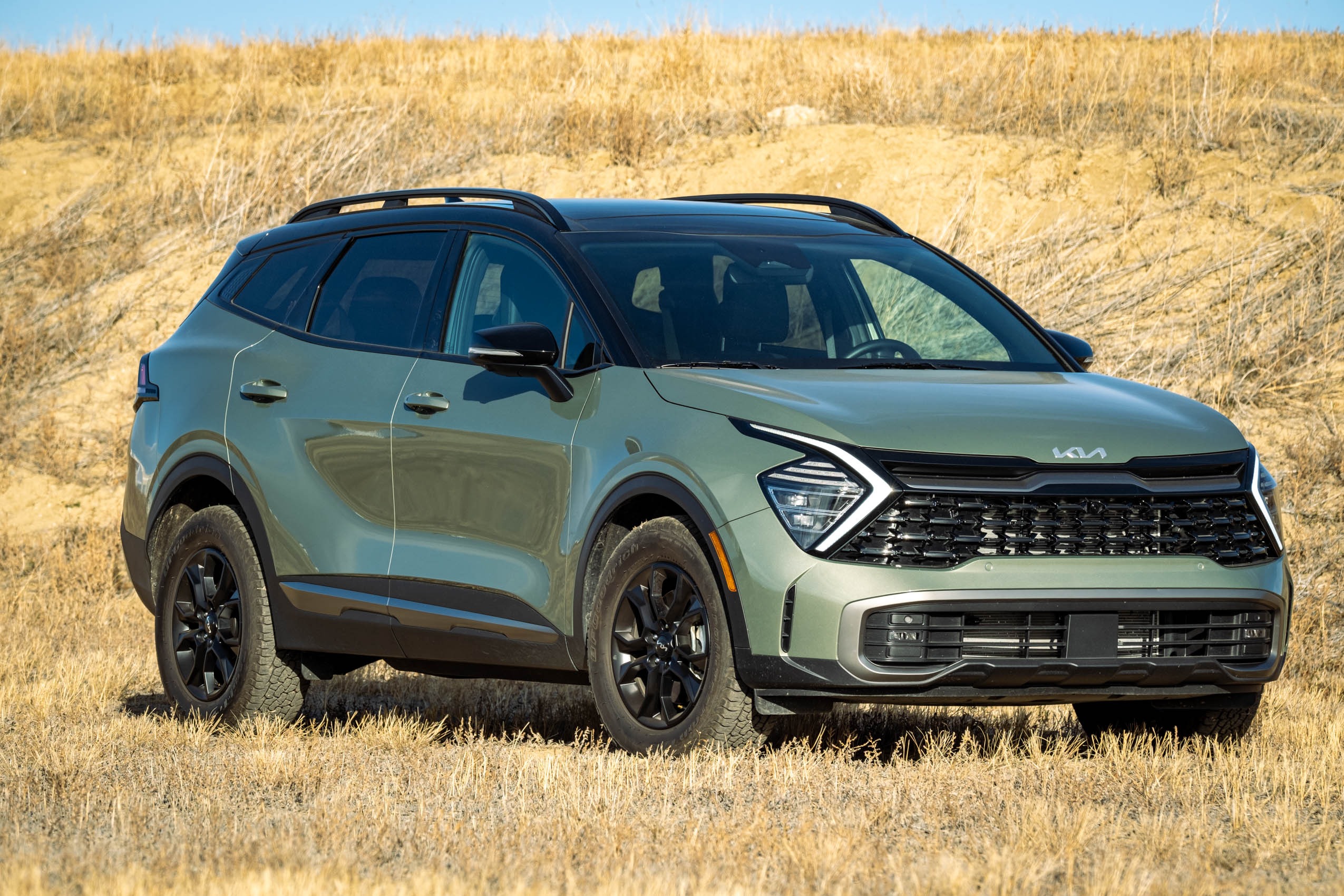
5. Kia Sportage
The Kia Sportage comes packed with great tech, comfort features, and strong value for the price. It works well for families and those who want a solid daily driver. However, when it comes to towing, the Sportage falls behind many of its competitors, especially among people looking for an SUV that can handle more than just the basics.
Depending on the engine, the Sportage offers a towing capacity between 1,653 pounds for the hybrid model and 2,500 pounds for the gas-powered version with all-wheel drive. These limits may sound acceptable for light hauling, but they offer little room for anything more serious than a small trailer. Trying to tow anything near the maximum limit makes the engine work harder than it was built for, especially during climbs or highway overtaking.
The engines offered particularly the 2.5-liter four-cylinder, are better suited for daily driving than pulling extra weight. The available turbo hybrid model improves fuel efficiency, but it sacrifices towing strength. Under towing pressure, the Sportage feels sluggish, and engine noise becomes more noticeable. These issues can make longer trips uncomfortable and tiring for the driver.
Kia also didn’t include extra towing tools that some rivals offer. There is no tow-haul mode, no sway control, and no enhanced cooling system to protect the engine when hauling. That means extra care is needed from the driver to prevent overloading the vehicle, and even more attention is required to keep everything stable while driving.
Inside, the cabin is modern and quiet, with enough space for passengers and cargo. The suspension works well for everyday road use, but when extra weight is added to the back, it starts to feel loose. The steering gets less responsive, and sudden braking takes longer, adding to the risk when towing in traffic or on highways.
The Kia Sportage remains a dependable vehicle for daily use, short trips, and small families. But for those who need reliable towing strength, this SUV should not be the first option on the list.

